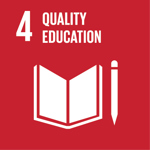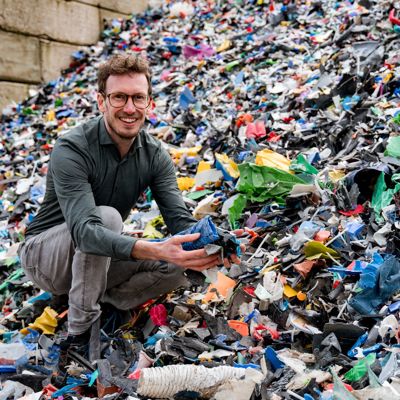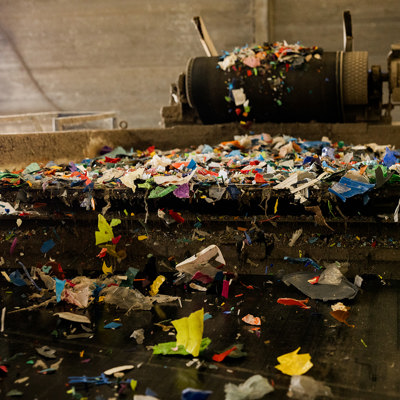


De productie en het gebruik van materialen zijn wereldwijd verantwoordelijk voor een groot deel van de CO₂-uitstoot. Een circulaire economie - waarin grondstoffen worden hergebruikt en afval wordt geminimaliseerd - biedt een krachtige oplossing. Toch is slechts 25% van de Nederlandse economie circulair. Vooral de recycling van harde plastics blijft achter. In Nederland wordt nog veel hard plastic verbrand, waardoor nieuw plastic uit olie moet worden geproduceerd. Dat kost natuurlijke grondstoffen en zorgt voor veel CO₂-uitstoot. In dit Nederlandse recyclingproject wordt hard plastic wél gerecycled, wat leidt tot aanzienlijke klimaatwinst. Het project draagt direct bij aan de ontwikkeling van recyclingcapaciteit en versnelt de transitie naar een circulaire economie. Zo wordt niet alleen uitstoot vermeden, maar ook de basis gelegd voor duurzamer materiaalgebruik in de toekomst.
In Biddinghuizen (Flevoland) worden grote harde plastic gebruiksvoorwerpen gerecycled, zoals tuinstoelen, emmers, kratten en buizen. Het plastic afval wordt zorgvuldig gesorteerd in zo’n twintig soorten, gewassen, gereinigd en versnipperd tot hoogwaardige grondstof. Deze wordt opnieuw ingezet voor de productie van nieuwe, duurzame producten. Het hele proces is circulair opgezet: zelfs het proceswater wordt gezuiverd en hergebruikt in een gesloten watersysteem. Dit recyclingproject laat zien hoe afval waarde krijgt en bijdraagt aan een lagere CO₂-uitstoot. Een inspirerend voorbeeld van circulaire innovatie in Nederland - en bovendien te bezoeken, zodat je met eigen ogen kunt zien welke tastbare impact hier wordt gerealiseerd.


Er gelden geen wettelijke verplichtingen om hard plastic te recyclen. Zo valt het niet onder producentenverantwoordelijkheid, waarmee de inzameling en recycling van andere plasticsoorten - zoals verpakkingen - wordt gefinancierd. Daarom werkt ORCA samen met dit innovatieve recyclingproject en verzorgt het volledige traject van certificering tot verkoop van CO₂-certificaten. Dankzij deze klimaatfinanciering blijft het recycleproces operationeel, kan er worden opgeschaald en verder geïnnoveerd. Het resultaat: meer gerecyclede grondstoffen en minder uitstoot. Het project is gecertificeerd door de Stichting Nationale Koolstofmarkt. De CO₂-reductie wordt berekend op basis van een analyse van TNO en jaarlijks onafhankelijk gecontroleerd door DNV. Zo ben je verzekerd van eerlijke, hoogwaardige certificaten met aantoonbare klimaatimpact.
